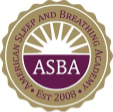Traveling with CPAP is Difficult
Is it time to consider oral appliances for traveling?
On August 4, 2007 the new government rules for TSA screening took effect. The new standards can be found at https://www.tsa.gov/travelers/sop/index.shtm
The rules state that large electronics such as DVD players, video cameras that take cassettes and CPAP machines must be taken out of your luggage and placed in bins in the same manner as laptop computers. This is a major inconvenience for the business traveler who also takes a laptop and travels without checked luggage.
There is concern that CPAP machines that supply air directly into the lungs can become contaminated when placed in the same bins that hold shoes. My suggestion is that you pack your CPAP machine in parts in plastic bags so that it can be checked without contamination. Travelers are already accustomed to packing liquids in clear plastic bags. An alternative is to send your CPAP thru as checked luggage well padded in a hard sided suitcase. I suggest marking the case in large letters on the outside: MEDICAL EQUIPMENT! CPAP! FRAGILE! Checked baggage may also be opened and checked by the TSA but clearly labeling it will reduce the chances that your luggage will be opened. Not packing distilled water will lower the chances of your checked luggage being opened. The airlines could score points with their passengers by providing distilled water to CPAP users while passing out beverages.
A terrible alternative is to leave your cpap at home and do without when you travel. I know this is frequently done but it is both dangerous and ill advised. Business travelers function at a lower level and vacationers deal with spouses snoring. There is a six-fold increase in motor vehicle accidents with untreated apnea and a 300% increase in MVA's involving serious injury. There are also major increases in heart attacks and strokes. Having a major medical problem when you're on the road makes the problems with carrying CPAP minimal by comparison.
A rational alternative is to consider using an oral appliance to treat apnea when traveling. This especially makes sense for the frequent traveler. Most patients who have tried oral appliances and CPAP prefer using the oral appliance to cpap machines. The American Academy of Sleep Medicine considers oral appliances to be equal to CPAP and a first line of treatment for mild to moderate apnea and for severe apnea in patients who do not tolerate CPAP. Carrying an oral appliance is hassle free as they fit easily in a purse or shirt pocket and have the added advantage of letting the traveler sleep on a plane trip without his /her snoring disturbing others on the plane. On long flights you can arrive well rested after using you appliance while you sleep. Try to use your CPAP on a plane. Oral appliances have additional advantages of not having to clean hoses or find distilled water. The same toothbrush and toothpaste used to clean your teeth can also clean your appliance.
For more information on oral appliances go to www.ihatecpap.com.
Dr Ira L Shapira is a Diplomate and founding member of the Academy of Dental Sleep Medicine. He is a founding member of DOSA, the dental organization for sleep apnea and has been doing research and treating patients with sleep apnea utilizing oral appliances for over 25 years. He can be contacted at www.ihatecpap.com






